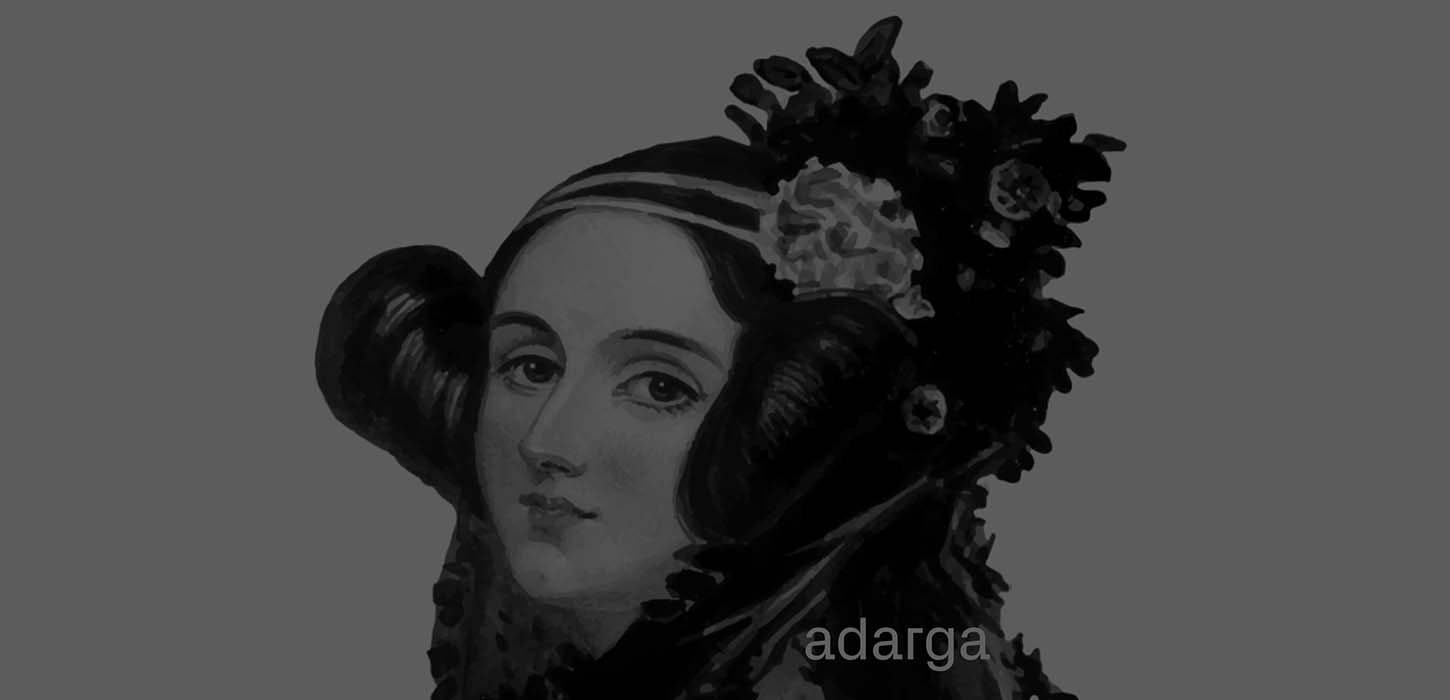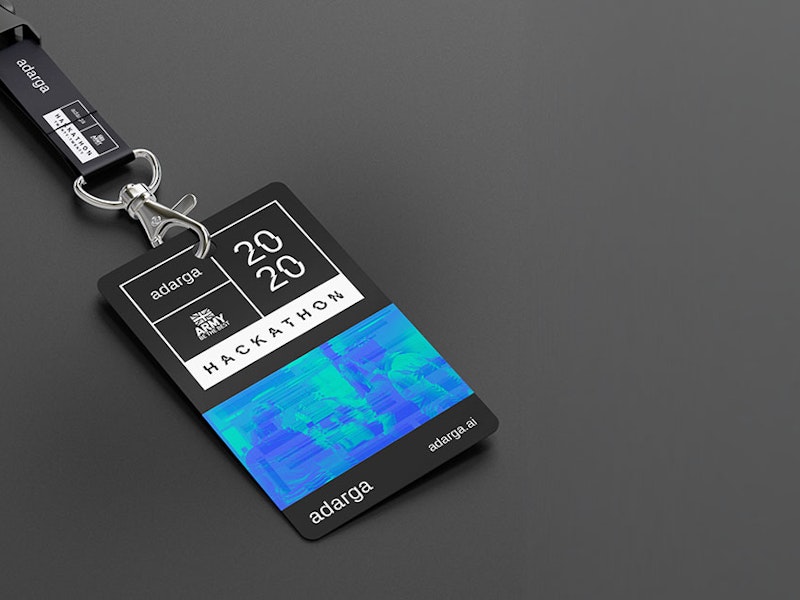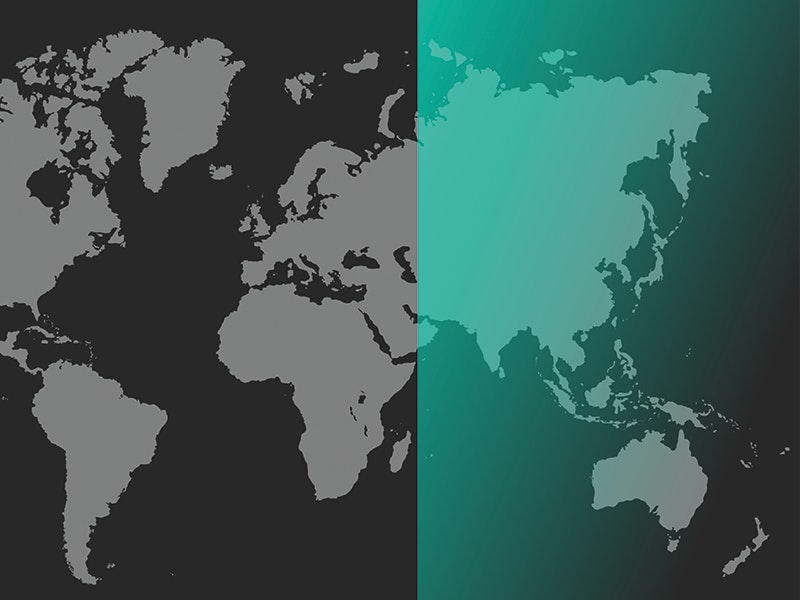
Ada Lovelace Day - (Ada)rga Data Scientist in the spotlight
Adarga Data Scientist Diana tells us about her inspiring career journey to date and why it's so important for us to vocalise gender parity challenges.
Gender parity is a challenge that will require much effort and the more vocal we are about it the faster women can fulfil their potential and take the place in economic and political decision-making that they deserve. We will have to stand together for this human right until, as Sheryl Sandberg stated, ‘[...] there will be no female leaders [;] there will just be leaders.'
I have crossed pathways with some outstanding women who have inspired me and encouraged me to accept challenges of my own. Today, I would like to thank all those women, share what it is like to work as a woman in the tech industry, describe some of my experiences along the way and provide my personal pieces of advice.
Several confident, strong women of my formative years have instilled me with the reassurance to trust in my abilities, aim high and not be discouraged by any potential roadblocks. I enjoyed school, was the first in my family to attend university and was fortunate enough to obtain a scholarship that supported my academic endeavours. Following the completion of my bachelor’s degree in International Relations and Management, I had the opportunity to spend a year studying Mandarin Chinese at Nanjing University and undertake an internship at a Chinese company.
While in China, I already played with the idea of pursuing a masters related to computational linguistics, as it allowed me to combine my passion for languages with my interest in technology. I knew that computational linguistics was not a natural transition from my previous academic field, but this did not discourage me. I had to think outside of the box to apply my fascination for languages in an innovative way. I signed up for linguistics courses in Nanjing and obtained a foundational understanding of linguistics through reading and online courses. Upon my return to Germany, I started working for a technology-focused business consultancy to gain experience in managing projects in the tech industry. Meanwhile, I completed online courses in Python and R in preparation for my master’s degree.
I obtained a place on the MSc programme in Speech and Language Processing at the University of Edinburgh. The MSc is an interdisciplinary program at the intersection of linguistics and computer science, ranging from phonetics and phonology over speech synthesis, speech recognition and statistics to natural language understanding, generation and machine translation. The Masters was one of the most challenging though extremely rewarding experiences I have had. Each day I obtained a deeper insight into the technologies that enable and facilitate human-computer interaction as well as communication in general. The intellectual stimulation and prospect of advancing in this field spurred me on during those demanding months. When I completed my degree with merit, I was pleased that I had enough confidence in my abilities to pursue a degree that was out of my comfort zone.
Pursuing a STEM subject was not something I had ever seriously considered before. It simply never occurred to me that an interest in the humanities and STEM subjects is not exclusive. In fact, it is through the combination of apparently diverging fields that innovative ideas are born. I would encourage anybody who is interested in technology to explore the multitude of fields that one could get involved in. Sometimes, the career path that would foster long-lasting enthusiasm is not the most obvious one, but might be an interdisciplinary subfield tucked away in between traditional subjects that, on their own, do not seem to arouse any profound curiosity.
Upon the completion of my master's degree, I obtained an internship in Adarga’s Data Science team. I had first learned about Adarga during a presentation given to our cohort in Edinburgh. I was intrigued by Adarga’s vision ‘to empower us all to realise the full potential of available knowledge’ and the work of the Data Science and natural language processing team towards the realisation of that vision. Three months into my internship I was offered a permanent position as a Data Scientist. In this short period of time, I have had the opportunity to work on exciting topics, take responsibility for my own project, learn a myriad of new software packages and tools and most importantly, learn from the experience and best practices of my excellent colleagues.
I would not be where I am now without one woman in particular, who has been a major source of inspiration to me: my French teacher from secondary school, who encouraged my love for languages. She taught both French and English and was an exceptionally enthusiastic teacher who brought languages to life. She imbued me with a sense of earnestness and joy in studying languages of which I currently know seven. On graduation day she recited a poem - ‘The Road Not Taken’ by American poet Robert Frost - which has fostered my sense of self-reflection and exploration that guides me throughout my career. One verse, in particular, has stayed with me since:
I shall be telling this with a sigh
Somewhere ages and ages hence:
Two roads diverged in a wood, and I—
I took the one less traveled by,
And that has made all the difference.
I encourage women to consider tech when contemplating their next career steps even if, and especially so, it may seem like a diversion from a more clear-cut path. Choosing the road less travelled may bear unanticipated challenges, but none that are impossible to overcome. Instead, stepping out of one’s comfort zone is a satisfying experience that helps us reflect on our talents. It provides us with a clearer picture of the type of career we would find most stimulating and enriching. So why not explore a career in tech?
Adarga is always on the lookout for great talent – have a look at the current openings on our Career Page or get in touch .









